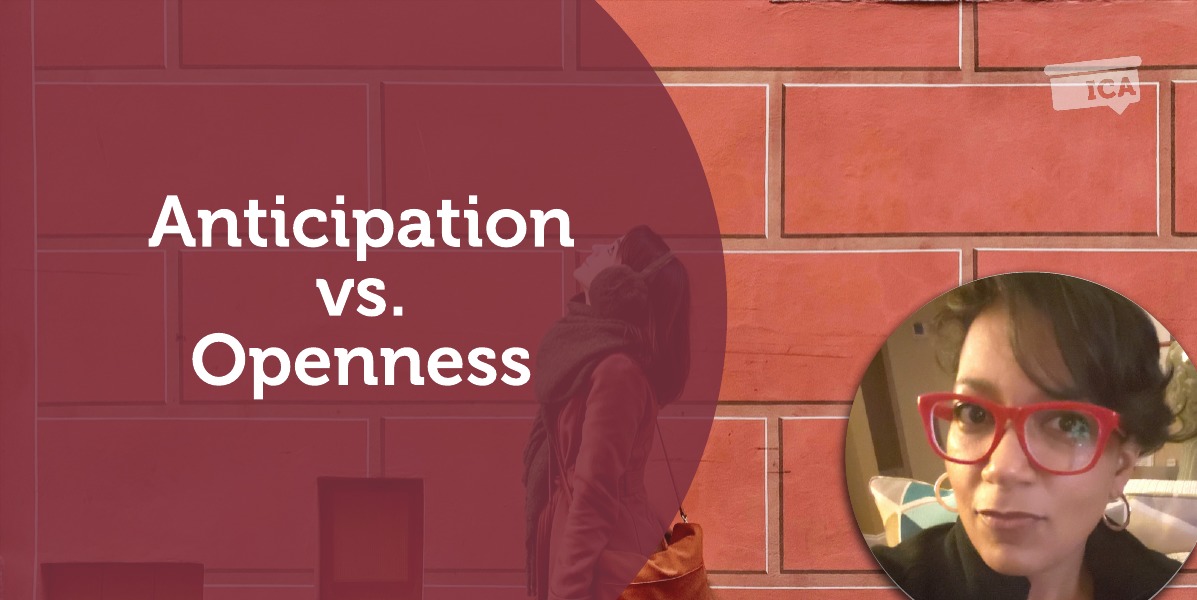A Coaching Power Tool Created by Audrey Blair
(Leadership & Confidence Coach, UNITED STATES)
Anyone: Hey there, when you have some time, there’s something I want to talk to you about.
You: Wait, what?! What is it? What did I do?! Oh boy.
The mind wonders with anticipation and expectation. It’s a bit maddening how there is a tendency to immediately jump into the future trying to figure out what someone else is going to say or what may happen. In some cases, we ruminate about what could be and consider the less-than-ideal scenario. At best, we show up, defenses up, at worst, we avoid the situation altogether. How we show up has a significant impact on what we can give and receive from those around us.
Anticipation is an emotion involving pleasure or anxiety in considering or awaiting an expected event.1
Anticipation is about setting an expectation, positive or negative. As a tool, it can be very powerful. Marketing experts use it to underscore what we are missing by not using their product or service while emphasizing the positive experiences that await once we do.
Often, we anticipate happy experiences – what would be the point of planning that vacation if we didn’t? While we all need something to look forward to, when we turn our thoughts to a negative future, it doesn’t serve us in the same way.
When we set ourselves up with anticipation, we’re also pre-determining how we show up. Imagining scenarios over and over creates emotion based on what we “think” will happen. We come up with answers to questions not asked, get hurt by comments not said, and carry that all into the conversation. It’s very difficult to listen when we show up with defenses up, anticipating the worse. We intend to respond to the scene in our heads and prejudge the lens through which we see a situation.
Openness denotes receptivity to new ideas and new experiences. It is associated with creativity, curiosity, and a hunger for knowledge and learning.3
Openness, on the other hand, creates space to show up unimpeded, fully present, and ready to listen. It also takes the pressure off of trying to figure out what will happen.
Coaching Application
“I’m having an issue with my co-worker”, my client says. “After addressing this with him, he’s now being very short and noncommunicative with me.”
Coach: What would you like to focus on today?
Client: I need to decide whether or not to have a conversation with a co-worker. After giving some feedback on an issue, he’s now being very short and noncommunicative with me.
Coach: What is preventing you from having this follow up conversation?
Client: I just want to ignore him. If we have a conversation, I just imagine he’ll have an attitude and it will get worse.
Coach: What would happen if you approach the conversation with openness rather than anticipating what he’ll say and the outcome?
Client: Well… If I think about it like that, it immediately takes a load off! It would force me to listen and respond to what’s happening in the conversation rather than what’s in my head. Plus, I could probably learn what I could have done differently the first time. At the end of the day, I just want to help and create a good work environment. It’s already hard enough now that we are all remote, so there is no need to add extra stress.
Reflection
- How much does your anticipation of the event affect how your view?
- What would be different if you were open to other possibilities?
